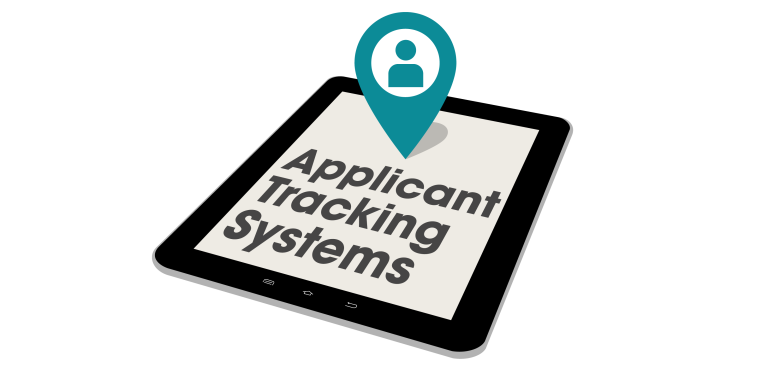
Where do I start with screening CVs?
Recruitment AdviceHere we are going to discuss the different criteria you can use to screen CVs and the importance of prioritising.
Before you start, we would recommend that you have a clear list of specific criteria that you are going to screen against. It is also recommended that you either assign a scoring system or a minimum/maximum level that you are happy to accept. This will help you move through the pile of CVs quicker to save you time and improve the speed of your recruitment process. It also ensures that you are only spending your time interviewing people who meet the requirements and not getting to the end of an interview to find out that something simple prevents them from working for you. Oh, and it will also help you to remain consistent and without bias when selecting individuals for the next process.
Don’t forget to document your screening criteria and processes as this will mean that you can demonstrate fair and best practice if ever called upon to provide proof in an Employment Tribunal.
When we asked a group of recruiters and HR Executives earlier this month about the criteria that they use when screening CVs, the majority of respondents only cited experience and salary as criteria they used. What we would like to highlight today, are all the other points you can add to your screening process.
The CV screening process can be a 2 or 3 stage process and should start with the quickest and most important criteria first. You may use an ATS like FFATS as the first line with automated killer questions, you may then use human judgement to review the next stage and then move onto a deeper dive with a telephone call. Just think about the candidate journey, how to get to the truth quickly and the method you will adopt to screen, as all these will have a bearing on the results.
In addition to salary and experience, the following screening elements could also be used…
1. Eligibility to work
You must ensure that every worker has the right to work in the UK, however, it is unlawful to discriminate against anyone on the grounds of their race and this can present its own issues to the employer. We would advise that you understand the law before you embark on your recruitment campaign. One question you can ask is “Do you have the right to work in the UK?” which may help you screen your applications faster.
2. Basic requirements
Do they need a driving licence or a vehicle? What hours do they need to work? Is there a requirement for level of fitness or a smoking policy?
3. Location
An easy one to screen against and we suggest using this as a killer question from the start. Does the location of the candidate matter to you? Are you in rural area where people must have a car? Or, are you in an area which has excellent public transport links? Do you need to set a boundary or a selection of postcodes to control how far you are happy for your employees to travel to work each day? Consider your current employees and the success or failures related to the commute, requirements of hybrid working or remote options.
4. Qualifications / education
What is the minimum level of education you will accept for the vacancy? Do you accept applications from applicants who are qualified by experience? Are there any specific qualifications or certificates that are essential for the role? Does your company have a policy for minimum levels such as 5 GCSEs?
5. Company culture
Consider your current employees, which companies or universities have they or have they not attended? What kind of individuals work well within your business? Are there any tell-tale signs on the CV, cover letter etc to demonstrate whether they would (not) fit in?
6. Company policies
What is your company policy? Do you have a recruitment policy? What about a training policy? Understanding what your policies are or setting clear policies before you start the recruitment process, will ensure you have a clear understanding of the guidelines you can work within and will also affect how you can adapt some of the criteria below.
7. Change of career
Can your organisation support new employees who are looking for a change in career? What are the essential skills and what skills could be transferred? Are there certain backgrounds you could consider or other backgrounds that certainly won’t work in your company?
8. Gaps in work history
Some employers are vigilant about whether they are happy to accept gaps, others are not. You may also wish to include something about job hoppers or people that have worked in a job too long. Consider your answers in relation to your company culture and policies.
9. Covering letter
When you set out your recruitment process, you may choose to ask for a covering letter, application form or answering online questions. Do you reject all applicants who have not followed your instructions or not?
10. Grammar
Poor spelling really isn’t an option in today’s world with spell check and all the other tools we have at our finger tips. At what point do you draw the line at unacceptable? Are you happy with minor mistakes or not? Where does the company stand on minimum levels of literacy?
11. Knowledge of the industry / market
Is it important that an applicant demonstrates that they understand your company, the market or your industry? Are there any ways within your recruitment process that you can add to encourage them to highlight what they know? This could be in the form of a simple question or maybe a video or presentation they will need to include with their application.
We hope that the list above gives you some ideas to get started and drafting your screening criteria with your recruitment strategy. Once you have outlined your minimum or maximums level of acceptance, then it is time to prioritise and weight each of your criteria according to its level of importance. At the end of the day, the last thing you want to do is deter applicants from applying to your company or make your criteria so tight that no one has a chance of employment with you.
More articles …
How can Applicant Tracking Systems (ATS) help the SME?
How can I improve the candidate experience?
Where do I start with screening CVs?
CV screening service.
Save time and stop reviewing unsuitable candidates. Add our CV screening service to any advertising campaign, at any time, to get to the best candidates quickly.
Flat Fee Applicant Tracking System (FFATS).
The Flat Fee Applicant Tracking System (FFATS) is included in all campaigns. It is an easy to use platform that allows you to screen CVs, filter candidates, organise interviews and send out important communications – all from a simple dashboard.

